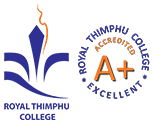RTC Happenings
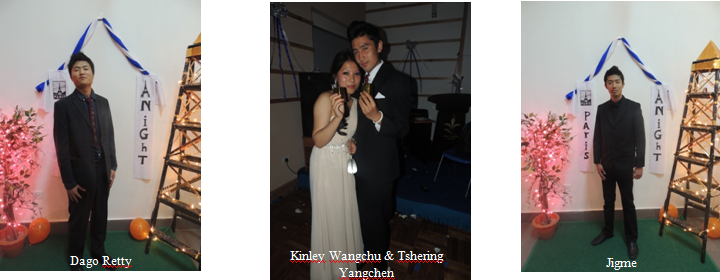
On 15th June 2013, the “Graduation Night” committee, along with Ms.Cathy, Mr.Arun, Mr.Suraj and Ms.Kimi of Royal Thimphu College organized a ‘Senior Night’ for the graduating class of 2013. The theme for the senior night was ‘Paris Night’. The event lasted for about four and half hours. Most of the senior students came and enjoyed themselves by dancing and posing for the photographs at the entrance and dressed for the theme. Most of the females were wearing red, black or white dresses whereas most of the males were wearing suits. All the seniors who attended the event looked very beautiful and handsome in what they wore.
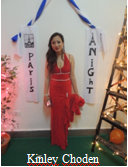 There were attractive prizes for the best dressed male and female, best couple and best entertainer of the night. The best dressed male went to Mr. Khedup Tobden. The best dressed female went to Ms. Kinley Choden. The best couple dressed went to Mr.Kinley Wangchu and Ms.Tshering Yangchen. The best entertainer for the night went to Mr. Jigme and Mr.Dago Retty. Mr. Jigme and Mr. Dago Retty were recognized as the best entertainers for the night as they were seeing dancing and entertaining the crowd all through the night.
There were attractive prizes for the best dressed male and female, best couple and best entertainer of the night. The best dressed male went to Mr. Khedup Tobden. The best dressed female went to Ms. Kinley Choden. The best couple dressed went to Mr.Kinley Wangchu and Ms.Tshering Yangchen. The best entertainer for the night went to Mr. Jigme and Mr.Dago Retty. Mr. Jigme and Mr. Dago Retty were recognized as the best entertainers for the night as they were seeing dancing and entertaining the crowd all through the night.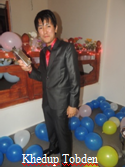
On behalf of all the seniors, we would like to thank the graduation night committee and the staff and the faculty who organized such a wonderful and a memorable event. This will be an unforgettable event for us, the graduating students. May this trend last for all the students who will be graduating in the future. The minutes that we spent with each other that night will always be cherished and are a valuable memory for all of us. Once again, we would like to give a big thank you to the organizing committee. (Contributed by Sonam Choden Tshering)
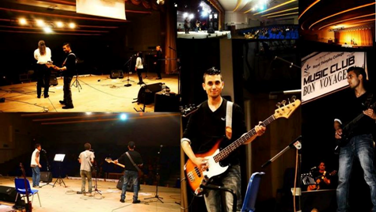
On 8th June 2013, the RTC Music Club organized a “Musical Night” that was dedicated to the graduating class of 2013. The Musical Night was organized by the music director of the RTC music club, Mr. Chris Hall along with the members of the RTC music club. The audience enjoyed the 2.5 hour performance by the students and lecturers of RTC as well as the performances by the three local bands of Thimphu. The students who performed were very talented and showed their talent in their specific areas like the drums, guitar and vocals.
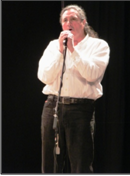 The staff who performed were also very talented specially Mr. Chris Hall who was on the drums for almost the entire show. Performances by the staff included singing by Ms. Kimi, Mr. Suraj, Mr.Subhajit and Mr. Rob’s rendition of Cheeseburger in Paradise. Some of the students who performed included Yeshi Bidha, Lhuendrup Dema, Arpan Tamang, Namgay Dorji, Lhakpa Tshering, Amir, Kachab, Salil Biswa and Tej. The highlight of this musical night was the performance by Mr. Suraj and his group – who received a. standing ovation. Lhakpa Tshering made this performance enjoyable with the shaking of his head and curls (Headbanging) and made it look like a rock concert.
The staff who performed were also very talented specially Mr. Chris Hall who was on the drums for almost the entire show. Performances by the staff included singing by Ms. Kimi, Mr. Suraj, Mr.Subhajit and Mr. Rob’s rendition of Cheeseburger in Paradise. Some of the students who performed included Yeshi Bidha, Lhuendrup Dema, Arpan Tamang, Namgay Dorji, Lhakpa Tshering, Amir, Kachab, Salil Biswa and Tej. The highlight of this musical night was the performance by Mr. Suraj and his group – who received a. standing ovation. Lhakpa Tshering made this performance enjoyable with the shaking of his head and curls (Headbanging) and made it look like a rock concert.
There were few performances by the three local bands from Thimphu. These bands were the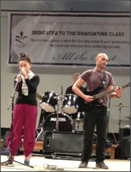 ‘Baby Boomers’, ‘Daydream Farmers’ and ‘Sonny Tobgay’. The band ‘Baby Boomers’ included some of the RTC students like Dawa Drakpa, Tej and Sonam Tobdhen. All the people who came to witness this show enjoyed all the performances. Finally, the Musical Night was a success and everyone, including staff and students of RTC, family members and friends of the participants and the participants enjoyed the whole show. All the participants put up a great show that received great applause at the end. Special thanks to the bands from Thimphu. Congratulations to all the participants for a great night. Good luck and best wishes to the ‘GRADUATING CLASS OF 2013’.
‘Baby Boomers’, ‘Daydream Farmers’ and ‘Sonny Tobgay’. The band ‘Baby Boomers’ included some of the RTC students like Dawa Drakpa, Tej and Sonam Tobdhen. All the people who came to witness this show enjoyed all the performances. Finally, the Musical Night was a success and everyone, including staff and students of RTC, family members and friends of the participants and the participants enjoyed the whole show. All the participants put up a great show that received great applause at the end. Special thanks to the bands from Thimphu. Congratulations to all the participants for a great night. Good luck and best wishes to the ‘GRADUATING CLASS OF 2013’.

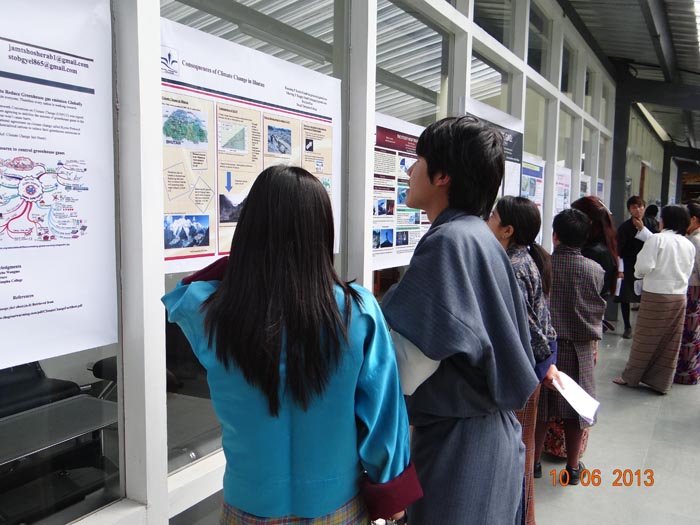
A total of 78 students of BA Environmental Studies of semester IV took part in the Scientific Poster Exhibition on ‘Climate Change’ which was held on 10th June, 2013 under the supervision of Ms. Kencho Wangmo (Senior Lecturer in EVS) at Royal Thimphu College. According to Ms. Kencho, the main objective of this initiative was to challenge and encourage students studying ES 241 (Air and Water Pollution) to find various scientific evidences related to climate change and to develop their interest, attention and understanding on this very important topic. The other objective was to expose students to the use of this visual communication tool to capture the interest of the RTC family in educating and creating awareness on some of the threats and vulnerabilities of climate change to Bhutan.
Both faculties and students from other Programmes were seen going through the exhibition work and interacting with different authors of the poster. The poster topics varied from the threats of Glacial Lake Outburst Floods (GLOFs) and outbreak of pests like Army Worm, Giant African land Snails (GALS) etc in the Agriculture and forest sector in Bhutan to various suggestions in reducing the GHGs at global level. It definitely provided a good platform to create awareness on the issue of global warming and climate change.
